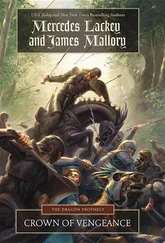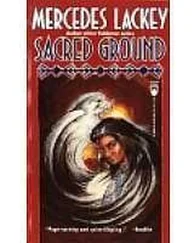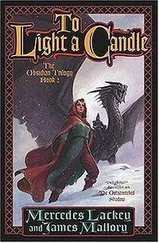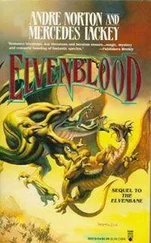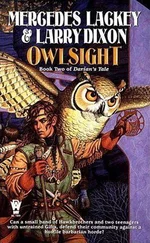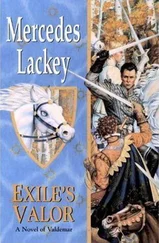Kiron had to shrug at that. “And this would leave whoever had lost an apprentice at precisely the same point he was before he had an apprentice at all. I think all of us are used to the work now. Besides, it’s better they quit as apprentices than take on a fledgling and abandon it.”
They were all silent on that point. No one had—yet. The closest that anyone had come was when Toreth had been murdered, leaving his dragon bereft. Aket-ten had saved it, comforting it mind-to-mind so that it rebonded with her. But what would happen if a hatchling was abandoned? There were no other Aket-tens about to comfort it. No, this would be much, much better, solving a potential problem and Kiron’s own dilemma at a single blow.
Huras nodded. “Personally, any help at all will be welcome. If it is only for a short time, it will still be welcome.” Kiron smiled at him. That is exactly the sort of thing he would have expected of the easygoing Huras.
“Then that is exactly what I will do,” he said, with a nod. “And if a young woman does not feel easy being an apprentice to one of the existing Jousters, she will just have to wait her turn being apprentice to Nofret or Aket-ten. That seems fair to me.”
And hopefully it would appease Aket-ten at last.
Kiron looked up at the sky where the young dragons were soaring in the thermals of late afternoon, then back at the lists Haraket was presenting for his perusal, and sighed.
“You know,” he said unhappily, “no matter what I decide on this, someone is going to object.”
“I know,” the former Overseer said, running a hand over his shaved head. “I know it only too well.”
“Of course you do,” Kiron sighed. There were two lists. The first was of items of construction and furnishings that had just come in from the arduous crossing of the desert. The second, and much longer, was the list of who had requested what items. There were at least two and often a dozen claimants for a single object.
“So what do I do?” he asked forlornly.
“If it were me? Take a walk. Look over what people already have. Some of them have already paid for things out of their own pocket, or brought them in on their own dragons. See what they have, cross things off their list that they’ve gotten for themselves. Then start with the people that haven’t hardly got a stick. Give them each one thing, and work your way down the list. Don’t give anyone more than one thing. That’s what I’d do.”
Kiron nodded thoughtfully. This was the first “official” caravan of goods coming directly from Mefis and the vizier of the Great King and Queen. There would be more; Ari had finally gotten them scheduled. But every new arrival would mean the same clamor for what was on those camels.
He sighed. “Which means another list. Who’s gotten what from the caravan. So it all gets parceled out equally until everyone has what they need.”
“That is what I would do,” Haraket said. “It seems the fairest and wisest course of action.” Again, he ran his hand over his hairless head. “I am glad it is you who is responsible for the decisions,” the former Overseer said ruefully. “I got a belly full of the results when I was in charge of the Dragon Courts, and that was in our days of plenty.”
Kiron rubbed his hands over the heated skin of his biceps. “I appreciate the aid, Haraket,” he said, with a grimace, “But I still would rather it was you.”
“You’re getting all bound up in this nonsense, boy,” Haraket said, then grinned. “Excuse me. Captain of Dragons. Go take Avatre out. Hunt if you want to, but get in some practice, too. Combat practice, even if your targets are nothing but thorn trees. There’s an itching in my bones that says that dragons and Jousters will be fighting again, maybe sooner than we think.”
Kiron looked up alertly at those words. Haraket shook his head. “No, I’ve never been god-touched, but I do get feelings, and they’re more often right than wrong. Get some practice in. If nothing else, you’ll feel better for it.”
Since the alternative was an afternoon listening to people complain about things he could do nothing about, he took Haraket’s advice, left the lists in his quarters, and called Avatre down from her sunning post. She did not look at all loath to quit it, and kept her head up, gazing about alertly as he saddled her and added the combat weapons. He’d always had the feeling that she had enjoyed combat, too, and her reactions seemed to confirm that.
So did the fact that she leaped into the air as soon as he was firmly settled in her saddle.
He gave her no directions, however; since the other dragons of Aerie were not out hunting, it would not matter if she entered someone else’s hunting ground. It was by general agreement that no two dragons, with the exception of Avatre and Re-eth-ke, shared the same hunting ground. They were generally as good and as reliable as the best-trained hunting dogs, but—
But another thing that no one had tested, and no one wanted to risk, was having two dragons come down on the same kill. Dragons in the wild fought over kills. Would the human-raised ones? No one knew. Avatre and Re-eth-ke cooperated because Aket-ten was there to tell them to, speaking in thoughts and images in their minds. Without Aket-ten there—
They might simply posture and circle, like a pair of cats that had not yet made up their minds to fight. But if they fought, if the riders didn’t get off and out of the way quickly enough, death or severe injury was inevitable. And although Kiron had never seen a dragon fight go on to serious hurt in wild dragons, all that meant was he hadn’t seen it. That didn’t mean it didn’t happen. There was a lot that wild dragons did that he hadn’t seen, nor had anyone else. No one had known, for instance, that a dragon mother would leave her youngsters in the care of another, if she felt that other was trustworthy enough. That was how Great Queen Nofret had gotten her dragon,
It made sense, though, and it explained something that had been reported—one or more of the previous hatching’s females hanging about the nests and not being driven away. It occurred to Kiron, as Avatre spiraled up a thermal, that this was very like what common-born women did, appointing an older child as a tender for the toddlers and infant. The young female got to practice her baby tending under the careful eye of her mother, then just before fledging, which was the moment when the babies really were sturdiest, the mother could fly off, leaving her older daughter in sole command of the nest. In the next few years, this lesson might be repeated, so that when the young female matured enough to mate, she was not relying on instinct alone to guide her in rearing her first hatch—
Such philosophical thoughts were rudely interrupted by the sound of shouting and screaming below him.
Startled, his involuntary movement made Avatre go into a sideslip, and he looked down over her shoulder.
Below him, men on horseback, attacking a laden caravan. With a start, he realized he and Avatre had gone farther afield than he had planned. And that this caravan was taking the more dangerous short route between Sanctuary and Ten-hen-tes, the so-called City of Caravans.
Dangerous, not just because of the lions that roamed this area, but because of the bandits, sadly on the increase. Renegades and lawless men, and some merely desperate, but all deserters from the armies of both Tia and Alta, seeking to make their fortunes by taking the fortunes of others.
The fighter in him instinctively responded, and Avatre in her turn responded instantly to the little signals his muscles gave by going into a steep dive.
His mind was startled, but his body was already reacting, shifting and leaning forward, while his hands reached for his sling and stone bullets. As the defenders of the caravan milled in confusion, and one bandit darted in to cut lead reins of the rearmost camel and lead it off, no one looked up, until the dragon and her rider were literally on top of them.
Читать дальше

